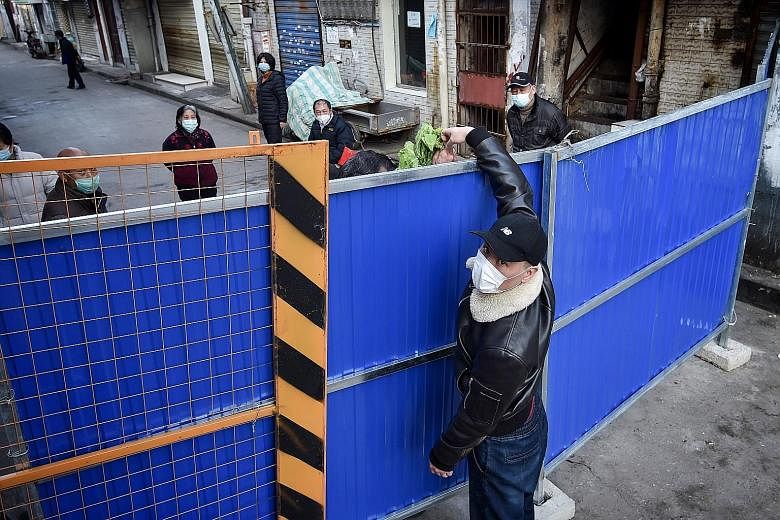After nearly a month of partial shutdowns, China is trying to restart its economy and resume a sense of normalcy while maintaining strict control measures in a bid to contain the coronavirus outbreak that has claimed 2,592 lives.
The central and local governments have started to loosen infection control measures as factories started resuming operations last week, with at least six provinces reducing their emergency response level from three to one.
China yesterday reported 409 new infections, bringing the total number of cases to 77,150, and 150 new deaths.
Most of these were in central China's Hubei province, the epicentre of the outbreak.
This came a day after Chinese President Xi Jinping told some 170,000 government and party officials in an unprecedented teleconference to "spare no effort" in the fight against the virus.
In extensive, wide-ranging remarks, Mr Xi also emphasised the need to restart factories and businesses so people could get back to work.
A senior government official said yesterday that companies in key areas with a bearing on the economy and livelihoods have returned to work more quickly.
Mr Cong Liang, secretary-general of the National Development and Reform Commission, told a press briefing that face mask production is now at 110 per cent of its normal capacity, but noted small and medium-sized enterprises have been hit especially hard by the delay in restarting operations.
Wuhan city, the capital of Hubei province and an important logistics hub, yesterday announced it was lifting travel restrictions before backtracking hours later.
An earlier statement announcing that non-residents could leave the city, which has been put under an unprecedented lockdown, was quickly deleted from the Twitter-like Weibo and state media sites.
Shortly after, a new announcement was issued on the local government's social media accounts, saying that the earlier announcement was "unauthorised" and that the lockdown remains in effect.
The reversal indicates how officials are struggling to balance restarting the country's ailing economy with navigating the draconian disease control measures that have reduced new infections in several provinces.
Beijing yesterday said its Parliament will postpone its annual March meeting, the first time it has been rescheduled in decades.
The announcement yesterday followed a meeting of the Standing Committee of the National People's Congress, China's top legislative body. No new date for the meetings was announced.
In his remarks on Sunday, the Chinese President also said there should be no let-up in control measures taken against the virus, according to an official transcript.
But it is exactly comments like these that have led to local officials getting mixed signals about instructions, said Professor Alfred Wu of the Lee Kuan Yew School of Public Policy.
"As a local official... you need to control the spread, and you need to deal with China's economic performance system, which would punish you down the road for bad GDP (gross domestic product) performance)," he said. "So the local officials end up having to second-guess the central government's wishes, which can sometimes lead us to the situation we saw, with Wuhan reversing its decision."
Last night, Dr Bruce Aylward, the head of a visiting World Health Organisation delegation, said China's "incredibly difficult measures" in tackling Covid-19 have probably prevented hundreds of thousands of cases in the country.


